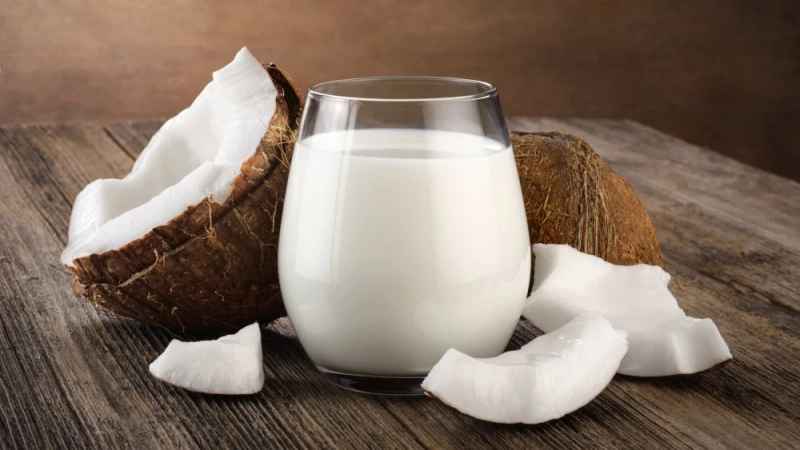Coconut milk is a liquid derived from the manual or mechanical extraction of coconut meat, with or without the addition of water. The composition of coconut milk is determined by the water used in the extraction process. The fat content and moisture of coconut milk are also affected by water. Coconut milk has a pH of 6 and is slightly acidic in nature. In the range of 6 to 8%, coconut milk contains two types of protein, albumins, and globulins. Manufacturers use the spray drying method to dry coconut milk into powdered form, which increases shelf life and makes transportation easier. Depending on its size, one coconut yields 60 to 100 grams of coconut powder on average.
Global coconut milk is being driven by a variety of applications for coconut milk and the high availability of coconut. Coconut milk is high in protein, including prolamin, gluten, albumin, and globulin.
Coconut milk has been linked to a variety of health benefits, including weight loss, immune system boosts, improved digestion, acne prevention, hair growth promotion, and sunburn treatment, as well as a lower risk of diabetes and Alzheimer's disease. Coconut milk is used in a variety of dishes and cuisines, as well as in the food and beverage industries for ice cream, yogurt, sauces, and beverages.
Read more @ https://isaiminis.com/coconut-milk-medium-chain-triglycerides-in-the-milk-aid-in-weight-loss.html
0


